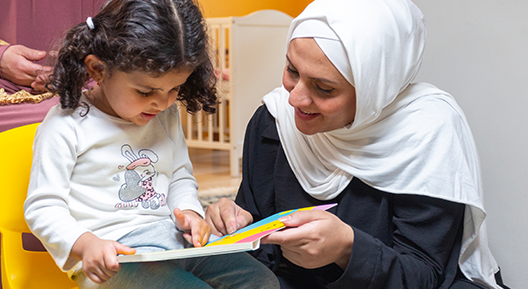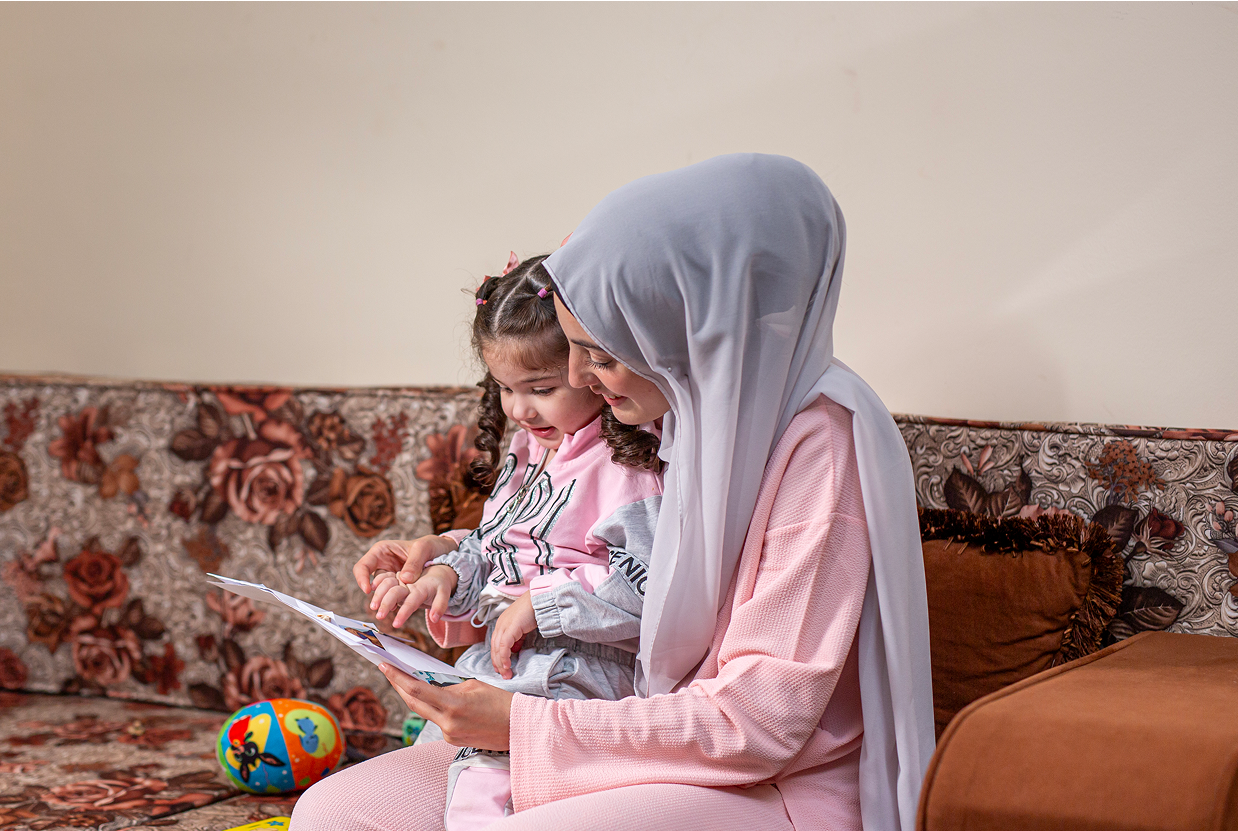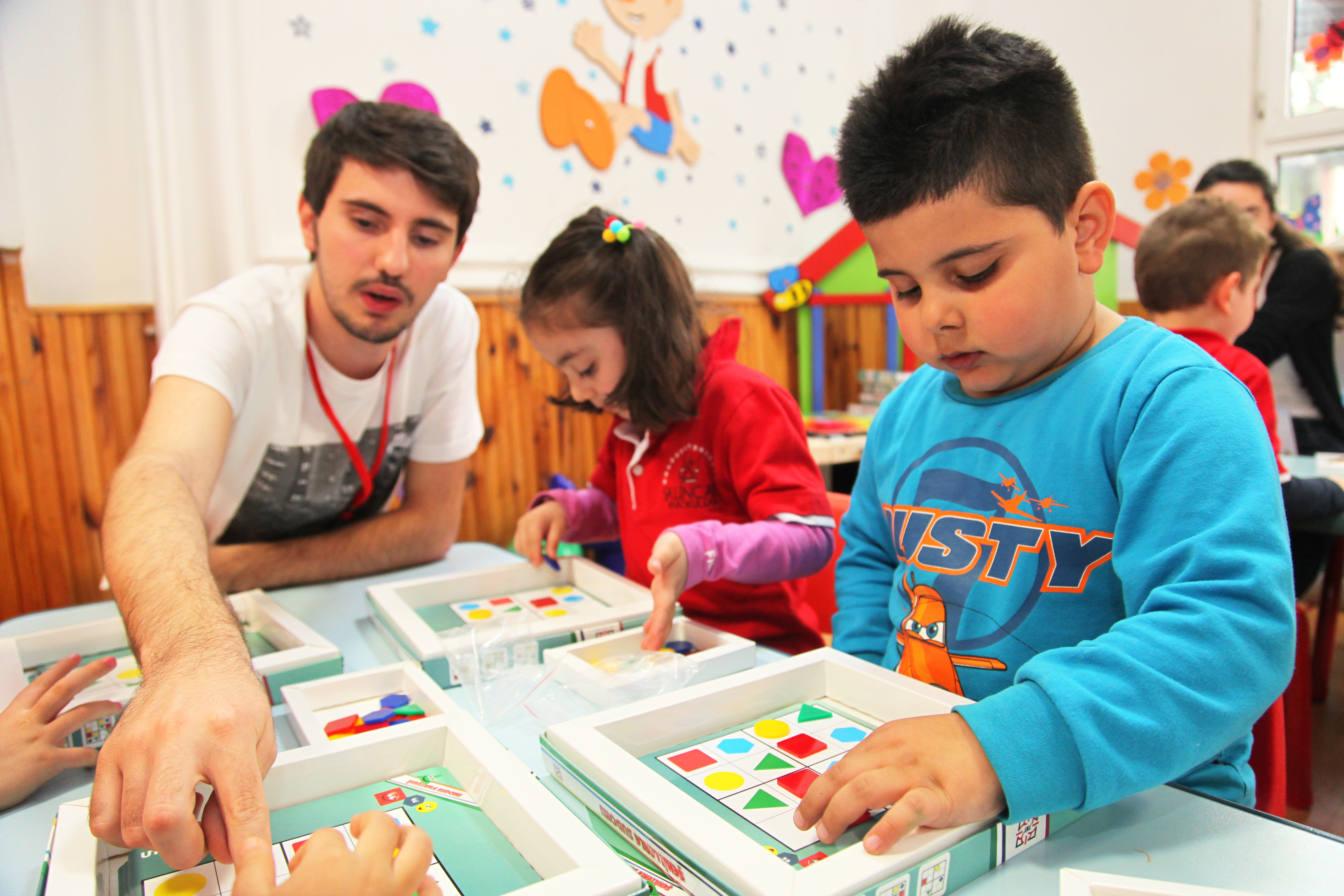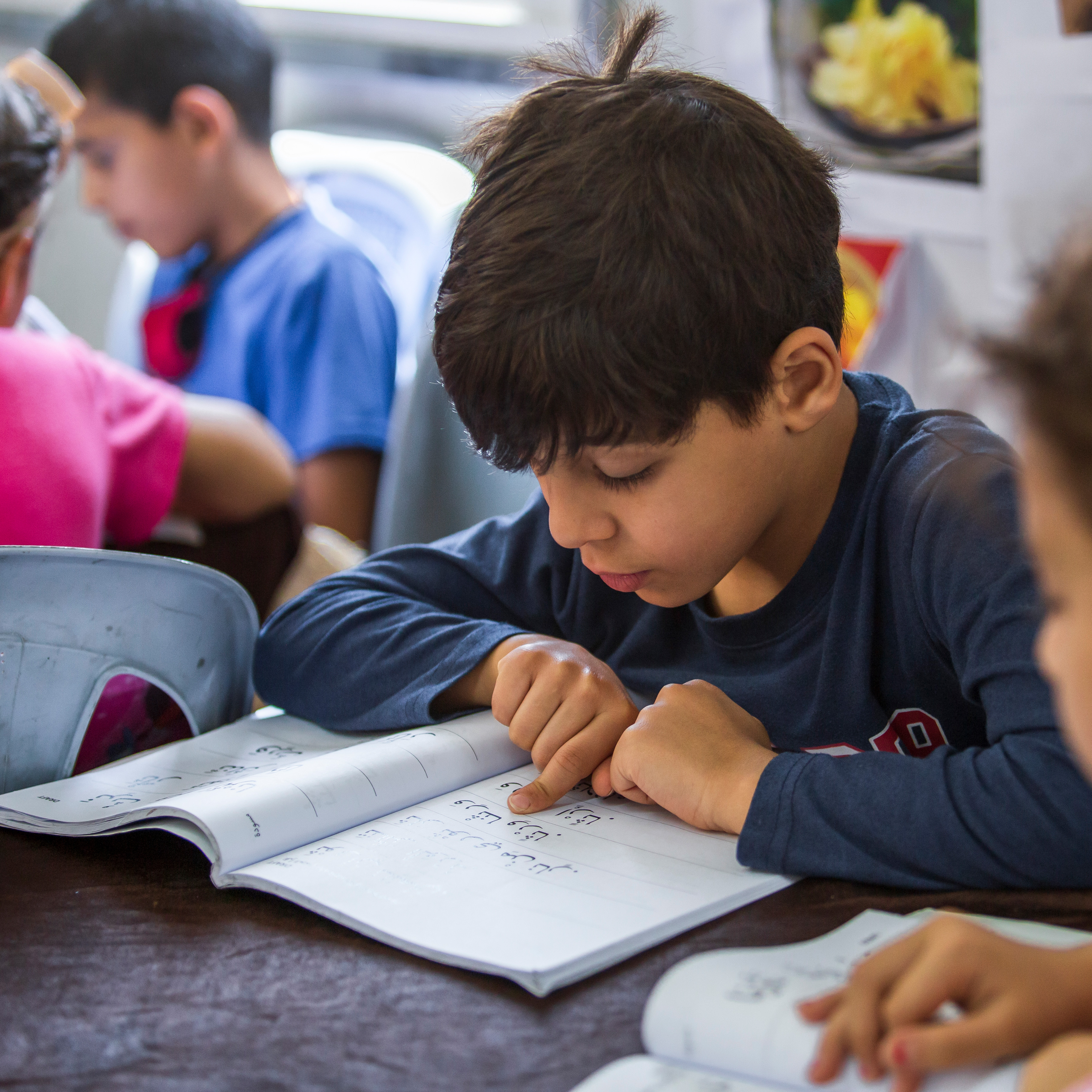READ – Transforming School Libraries into Gateways to Discovery and Imagination

READ – Transforming School Libraries into Gateways to Discovery and Imagination
In Jordan, classrooms that contain reading materials are 4.3 more likely to perform strongly in literacy measures (EGRA 2012) compared to classrooms that have no reading materials. This correlation holds even when pupil wealth is taken into account. Appropriate and engaging reading materials in Jordan’s elementary public schools' classrooms and libraries are in short supply, resulting in a lack of opportunities for children to develop their reading skills and a love of reading. Without a sustained effort to provide students with appealing reading material, and to equip teachers with the skills and habits to promote reading and facilitate reading activities, there will always be a tight lid on the extent to which learners will be able to acquire the reading skills that are so important to their ongoing learning and future prosperity.
In 2024, the READ Program continued its mission to nurture a love for reading among Jordan’s children by transforming school libraries into vibrant spaces where stories and reading come alive. Through colorful libraries and classroom reading corners, the program provided age-appropriate, high-quality books that open the doors to imagination and learning. These spaces became much more than book repositories—they became gateways of discovery, sparking curiosity and inspiring a lifelong habit of reading.
Empowering Educators: The Heart of the READ Program
Central to the program’s success were the teachers and librarians who brought these spaces to life. Through specialized training and personalized coaching, educators developed the skills to:
- Engage students with captivating storytelling.
- Lead interactive read-aloud sessions.
- Foster a joyful, welcoming environment for reading.
Their dedication turned schools into hubs of literacy, where students felt inspired to explore the world through books. Teachers and librarians became champions of reading, igniting a passion for stories that transcended classroom walls.
Inclusive and Flexible Models
Recognizing the diverse needs of schools, READ employed flexible models to ensure inclusivity:
- Full-Scale Libraries: A dedicated library room fully stocked with books and comfortable reading spaces.
- Classroom Reading Corners: Small but impactful reading spaces within classrooms.
- Mobile Libraries: Reaching underserved areas to ensure no child is left behind.
These tailored approaches allowed the program to accommodate schools with varying capacities, ensuring that every child could access meaningful reading experiences.
Fostering a Culture of Reading at Home
READ extended its reach beyond school gates, actively engaging families and communities to create a culture of reading at home. Storybooks were sent home with children, encouraging parents to make reading a shared, family-centered experience. This holistic approach brought the joy of reading into households, helping children see books as daily companions and strengthening family bonds in the process.
READ 2024 in Numbers
- Schools Transformed: 24 new schools joined the program, bringing the total to 63 schools since 2021.
- Total books distributed to schools: 82,395
- Educators Empowered: 455 teachers, 64 librarians, and 64 principals received specialized training.
- Total Books Checked Out: 120,654 books were borrowed by students.
- Students Impacted: The program reached 32,000 students in participating schools.
- Average Borrowing Rate: Each student checked out an average of 5.32 books.
Securing a Sustainable Future
In partnership with the Ministry of Education, READ formed a dedicated team of champions to identify scalable and sustainable solutions for establishing effective school libraries. This collaboration went beyond immediate interventions, addressing systemic challenges such as book approvals and library regulations to ensure long-term impact. By aligning policies and exploring sustainable strategies, READ laid the foundation for integrating reading initiatives into Jordan’s educational framework. In 2024, the program not only expanded children’s access to books but also worked to ensure these efforts would create lasting benefits for future generations.




